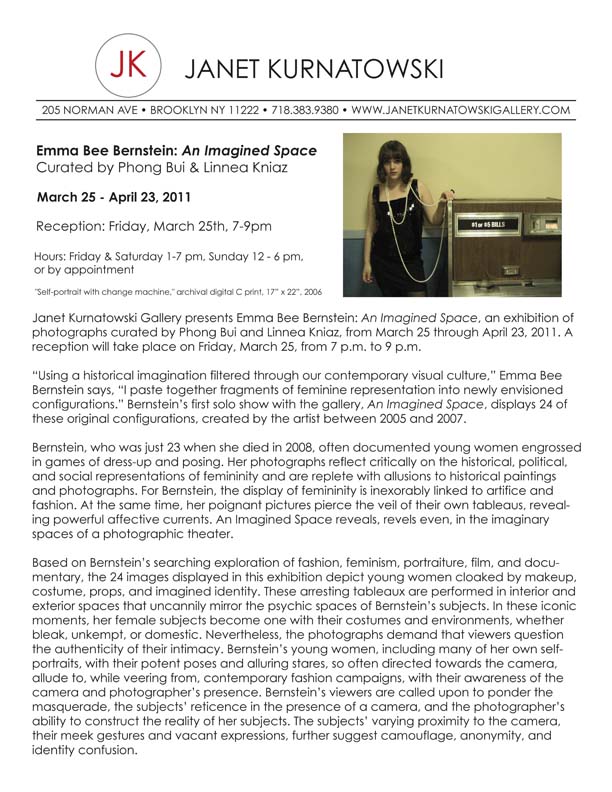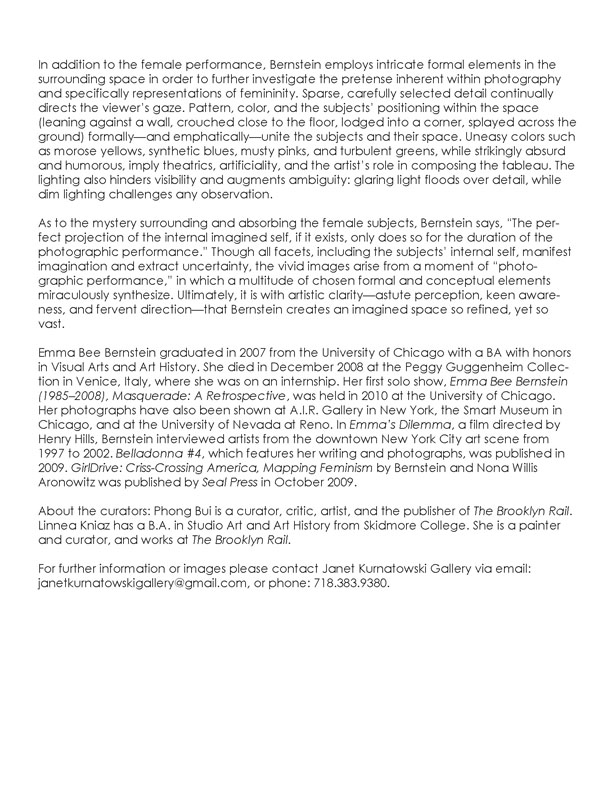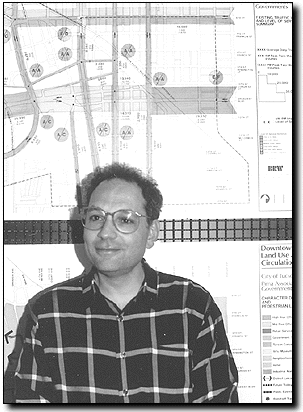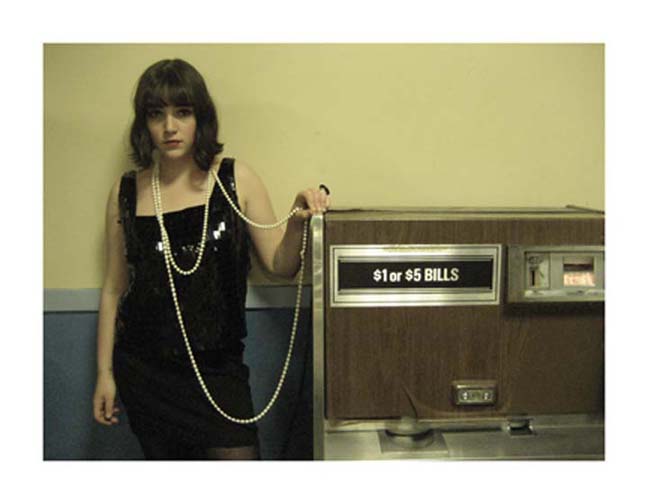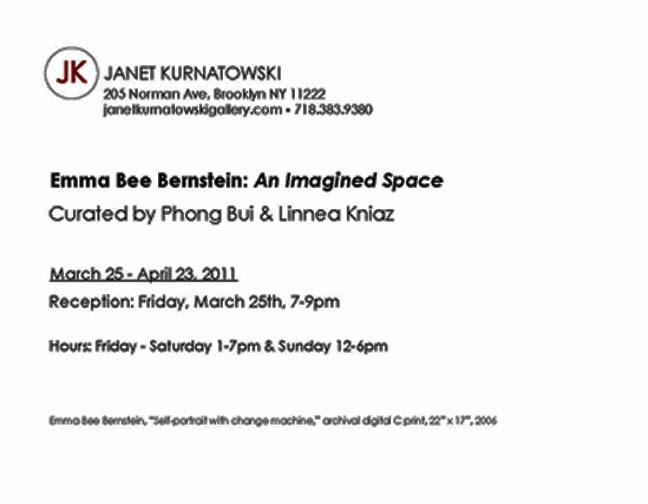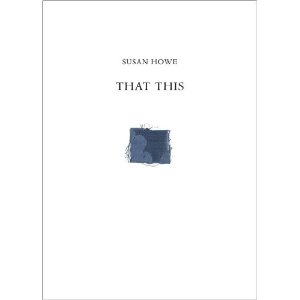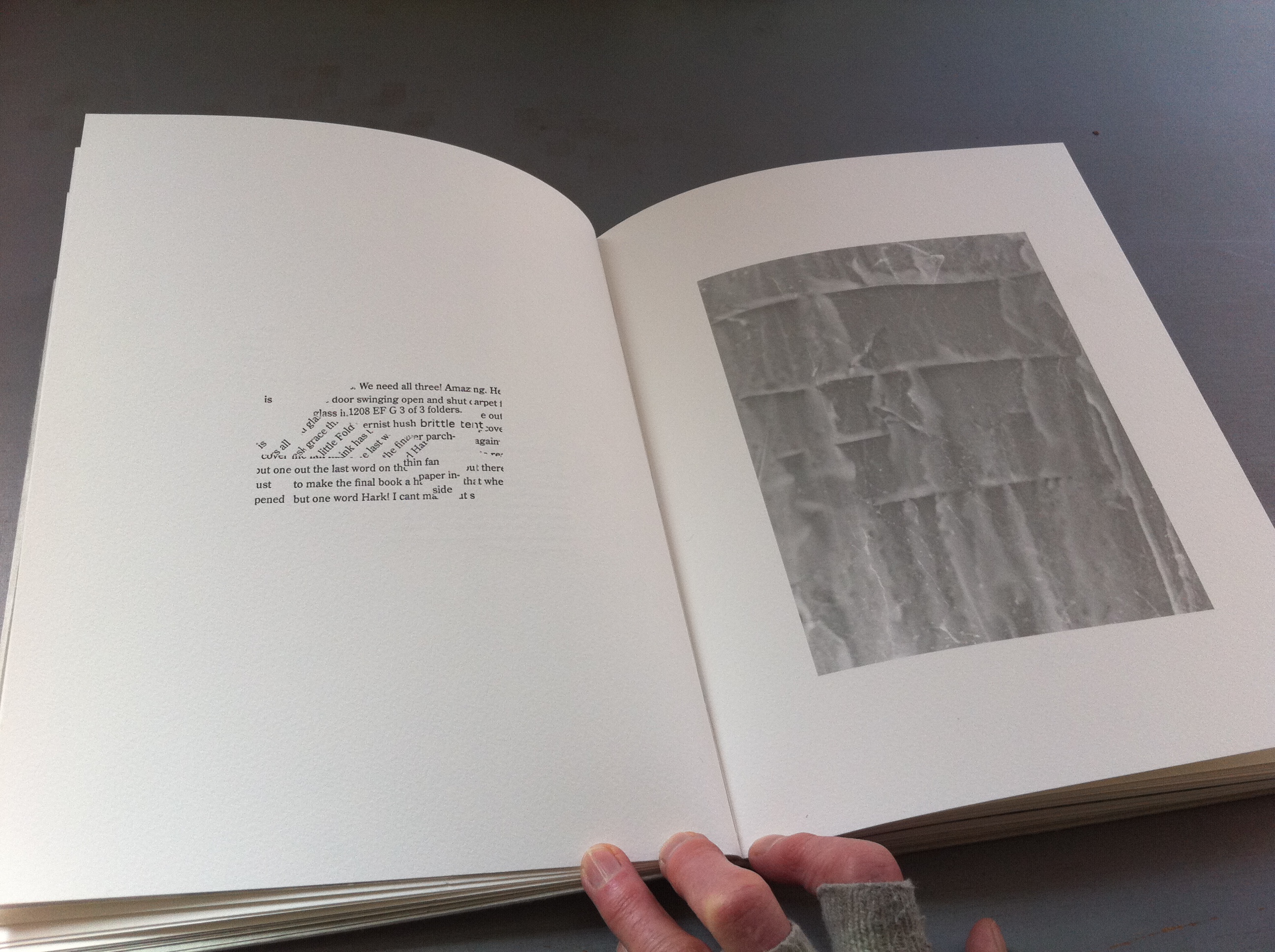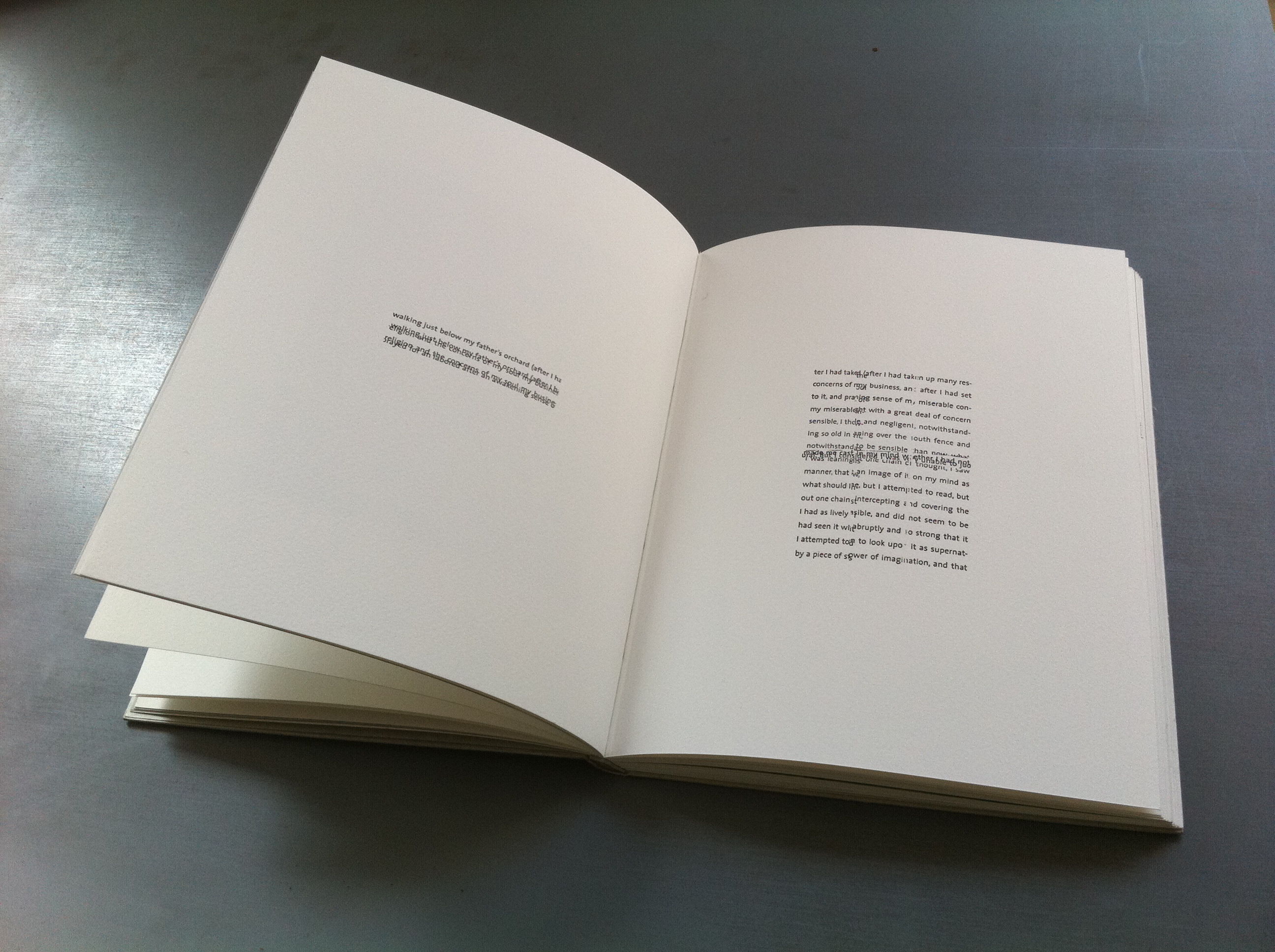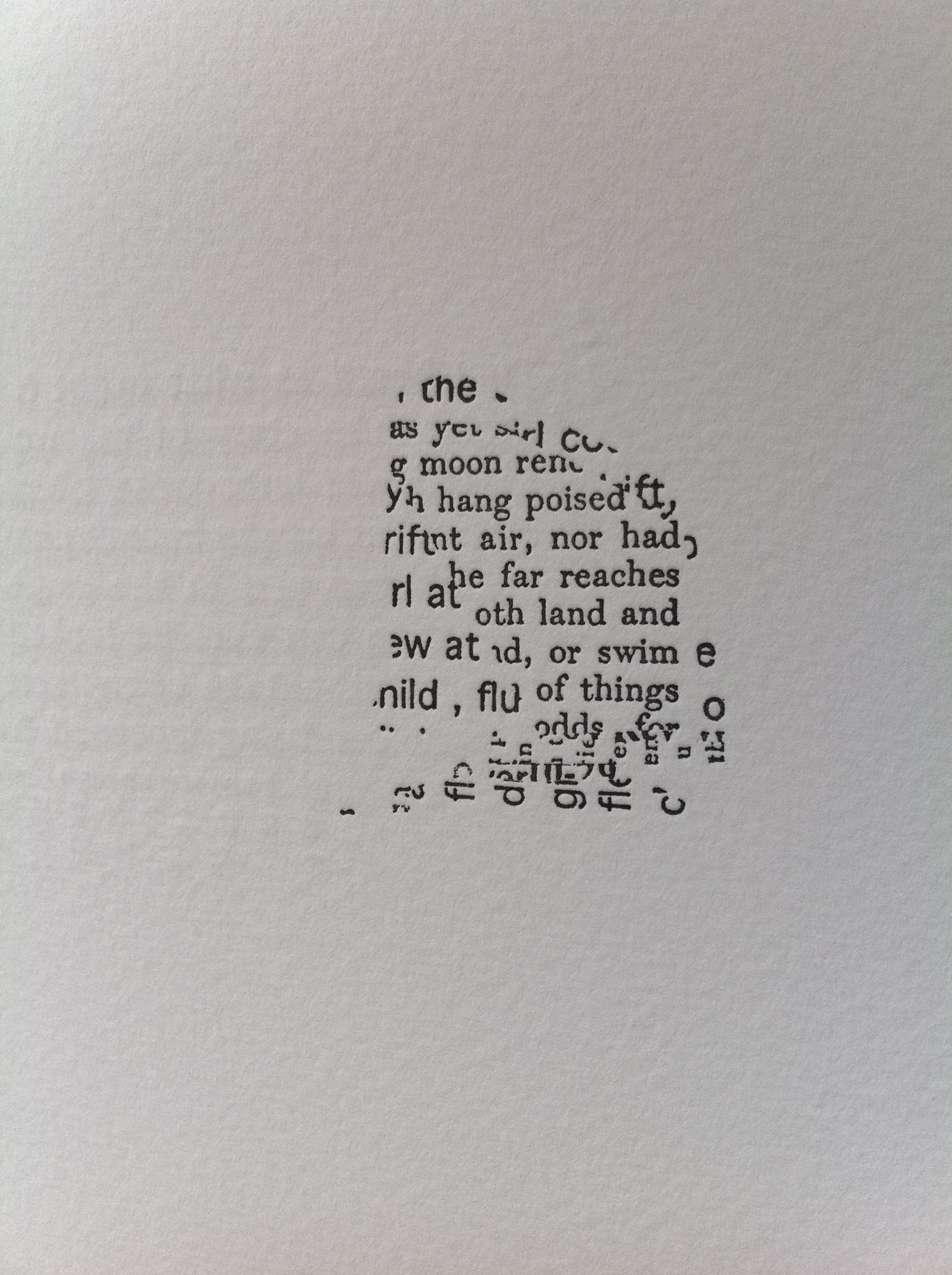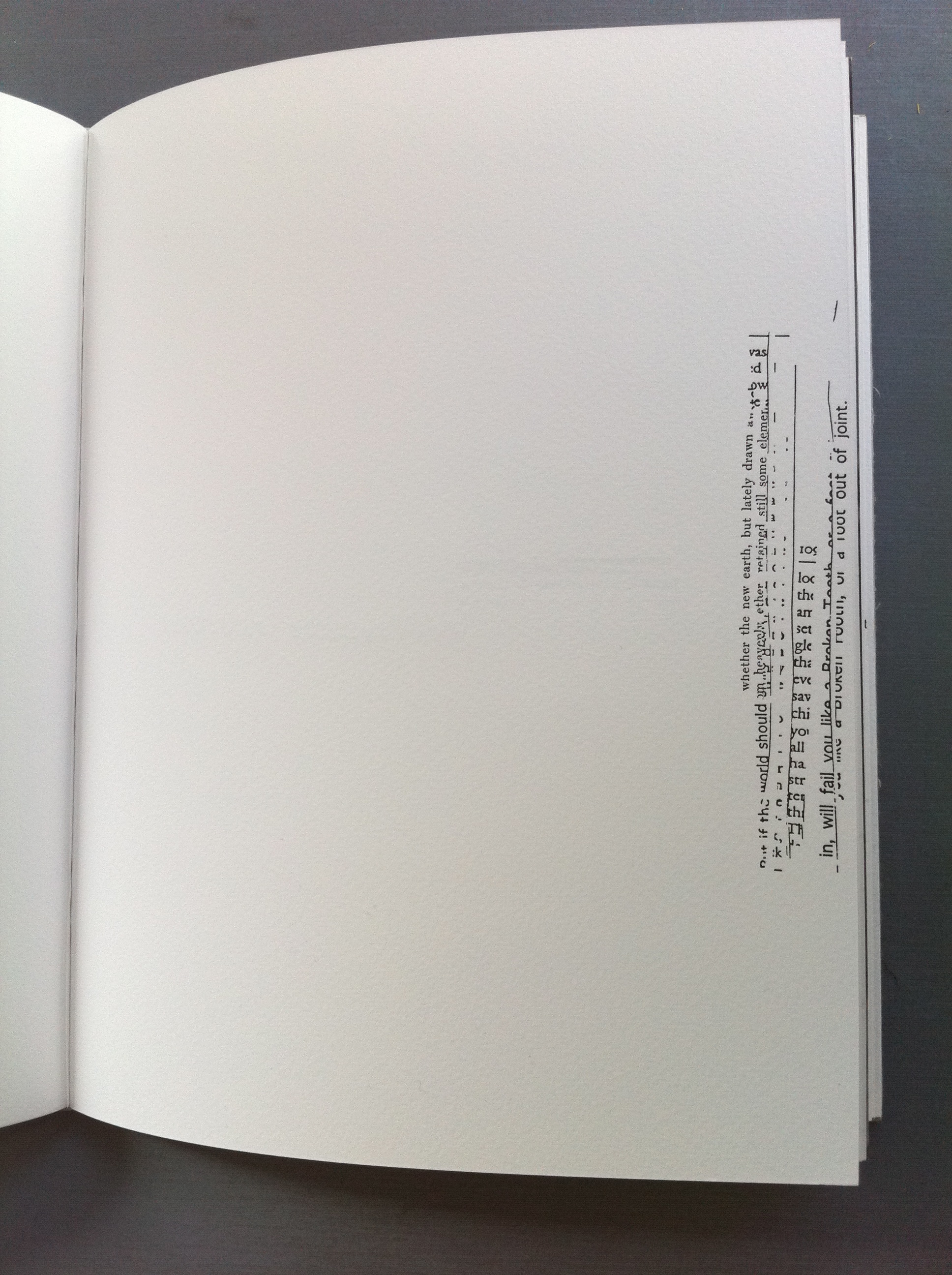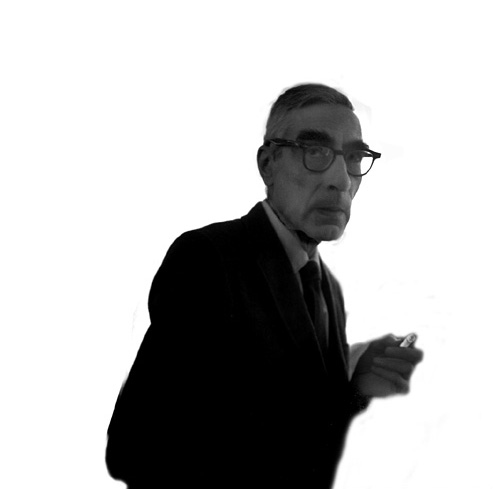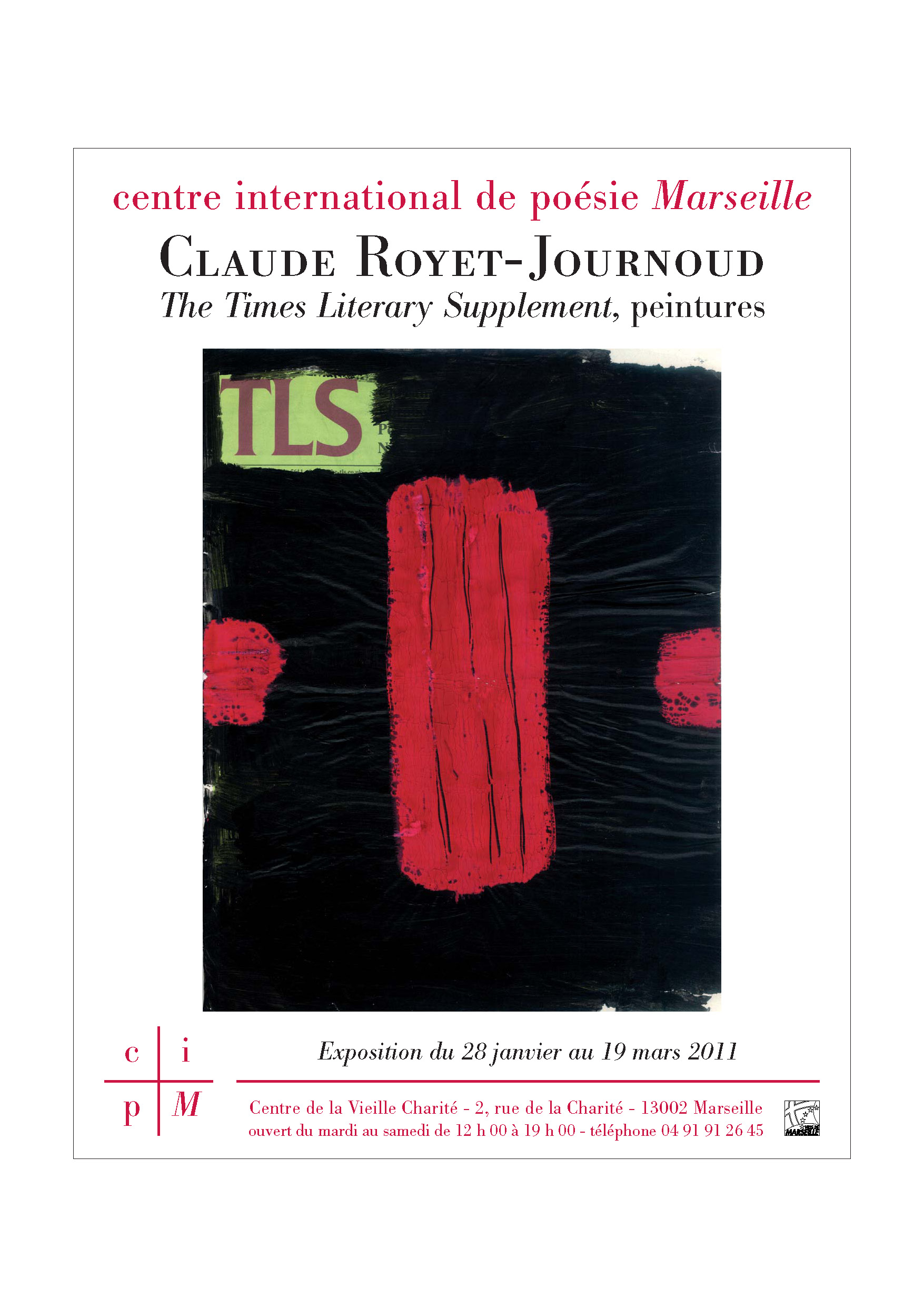EMMA BEE BERNSTEIN
by Holland Cotter
‘An Imagined Space’
Janet Kurnatowski Gallery
205 Norman Avenue
Greenpoint, Brooklyn
Through April 23
The New York Times
April 8, 2011, posted April 7
The artist and writer Emma Bee Bernstein died in 2008 at 23, an age when most people have barely started their life’s work. But she had already gone some distance with hers, judging by this show of two dozen color photographs she made from 2005 to 2007, when she was an art student at the University of Chicago.
All the photographs are of young women, either Ms. Bernstein herself or friends. In the earliest, taken outdoors, a ghostly white-dressed figure lies, like a Victorian Ophelia, in a dank woodland setting: the image is like Julia Margaret Cameron channeled through the gothic-surrealist eye of the contemporary artist Anna Gaskell.
More often Ms. Bernstein shot her subjects in cramped domestic settings: a bathroom with floral-print wallpaper, a packed closet, the corner of a room. A woman stands against a closed door as if being interrogated. The artist herself, in a loudly patterned dress, seems to be trapped in an angle formed by two bright yellow walls.
As her art suggests, she looked at a lot of photography, old and new, by and about women, and readily acknowledged her influences. But she came up with something of her own. The show, organized by Phong Bui and Linnea Kniaz, feels cohesive in visual theme, with its repeated images of women dressed either in nightwear, like shut-ins, or in awkwardly tailored dresses that don’t quite fit (too large, too small, too garish). And it’s consistent in tone, with an atmosphere of tension, verging on discomfort though interlaced with humor, and a guardedness that never relaxes.
In 2007, with a journalist-friend Nona Willis Aronowitz, Ms. Bernstein drove across country, interviewing dozens of women. The resulting book, “Girldrive: Criss-Crossing America, Redefining Feminism” (Seal Press, 2009), gives a sampling of her intelligent and personable writing style. And her avid personality comes through in a second book from the same year, this one published by Belladonna Press. Titled “A Tribute to Emma Bee Bernstein,” it has contributions by her mother, the artist Susan Bee (her father is the poet Charles Bernstein), and from the scholars Johanna Drucker and Marjorie Perloff, who remember her with admiration and love.



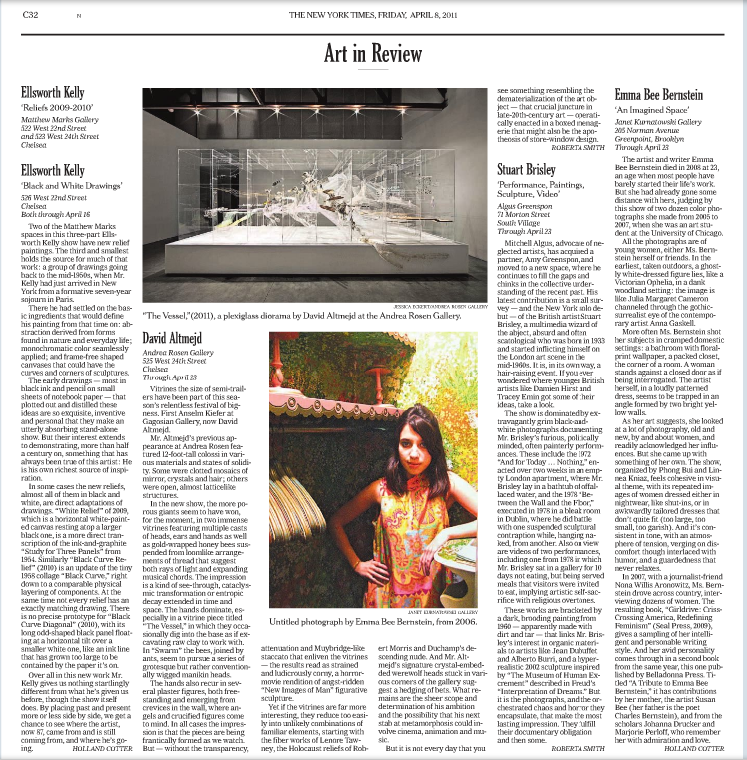
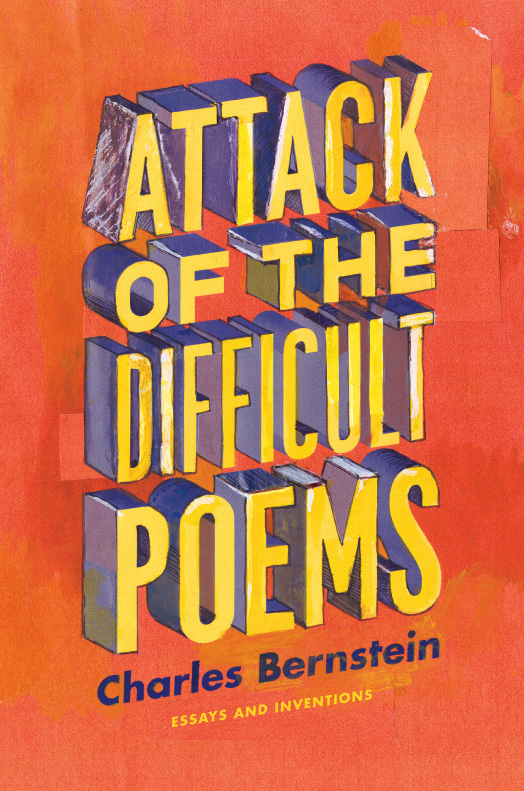

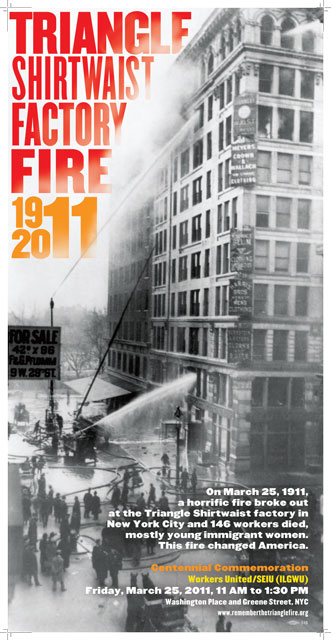
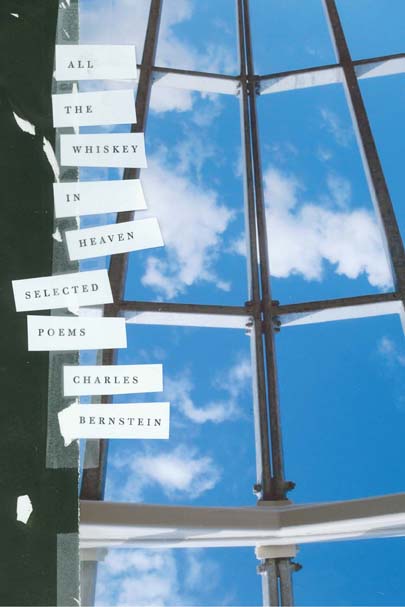
 starred review This gathering of 30 years worth of work by the prominent L=A=N=G=U=A=G=E poet and essayist offers a rigorous critique of the art of poetry itself, which means, among other things, a thorough investigation of language and the mind. Varied voices and genres are at play, from a colloquial letter of complaint to the manager of a Manhattan subway station to a fragmentary meditation on the forces that underlie the formation of knowledge. Bernstein's attention to the uncertainty surrounding the self as it purports to exist in poetry—“its virtual (or ventriloquized)/ anonymity—opens fresh pathways toward thinking through Rimbaud's dictum that “I is another.” In addition to philosophical depth—which somehow even lurks beneath statements like “There is nothing/ in this poem/ that is in any/ way difficult/ to understand”—a razor-sharp wit ties the book together: “You can't/ watch ice sports with the lights on!” These exhilarating, challenging poems raise countless essential questions about the form and function of poetry. (Mar.)
starred review This gathering of 30 years worth of work by the prominent L=A=N=G=U=A=G=E poet and essayist offers a rigorous critique of the art of poetry itself, which means, among other things, a thorough investigation of language and the mind. Varied voices and genres are at play, from a colloquial letter of complaint to the manager of a Manhattan subway station to a fragmentary meditation on the forces that underlie the formation of knowledge. Bernstein's attention to the uncertainty surrounding the self as it purports to exist in poetry—“its virtual (or ventriloquized)/ anonymity—opens fresh pathways toward thinking through Rimbaud's dictum that “I is another.” In addition to philosophical depth—which somehow even lurks beneath statements like “There is nothing/ in this poem/ that is in any/ way difficult/ to understand”—a razor-sharp wit ties the book together: “You can't/ watch ice sports with the lights on!” These exhilarating, challenging poems raise countless essential questions about the form and function of poetry. (Mar.)